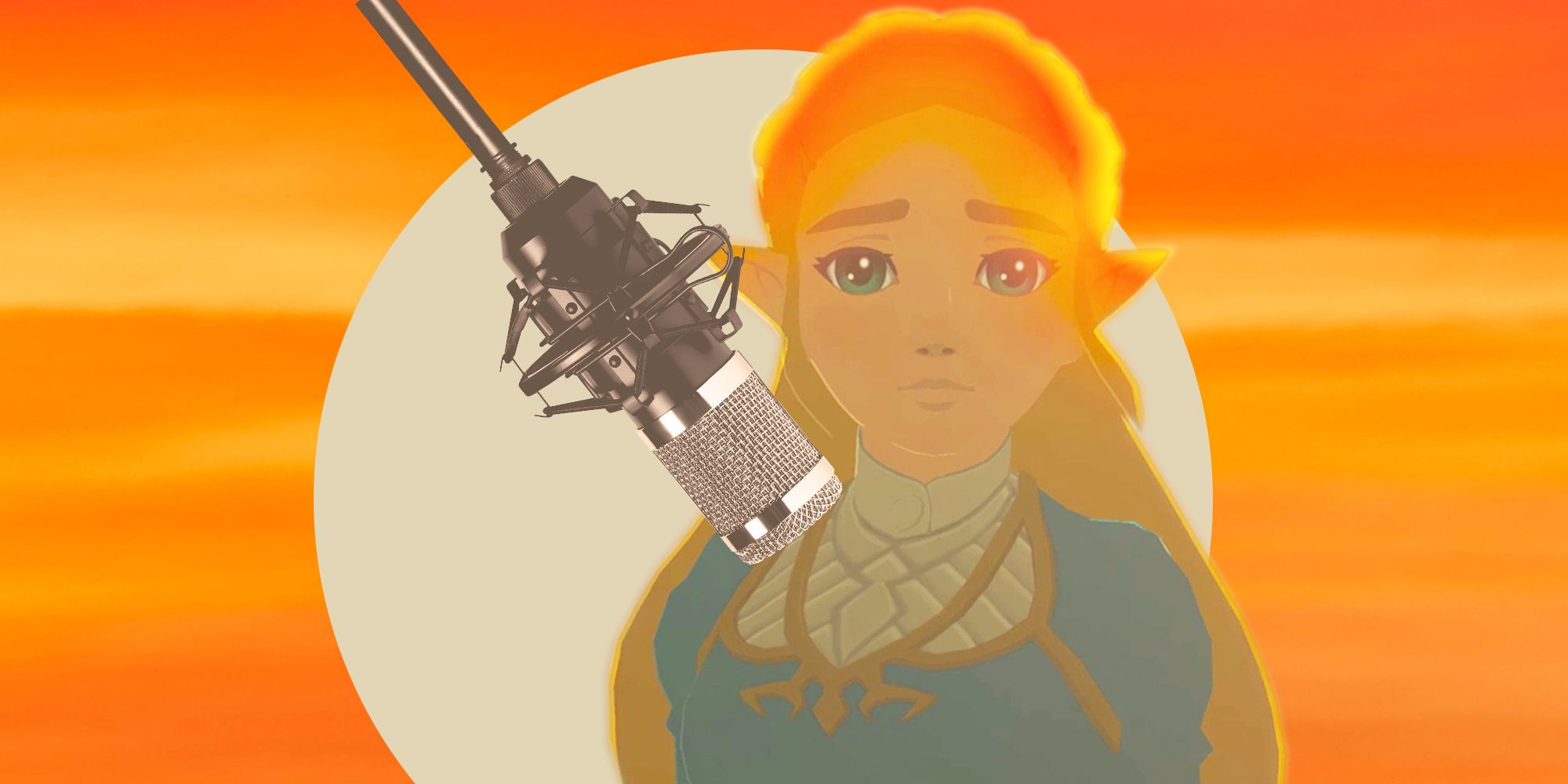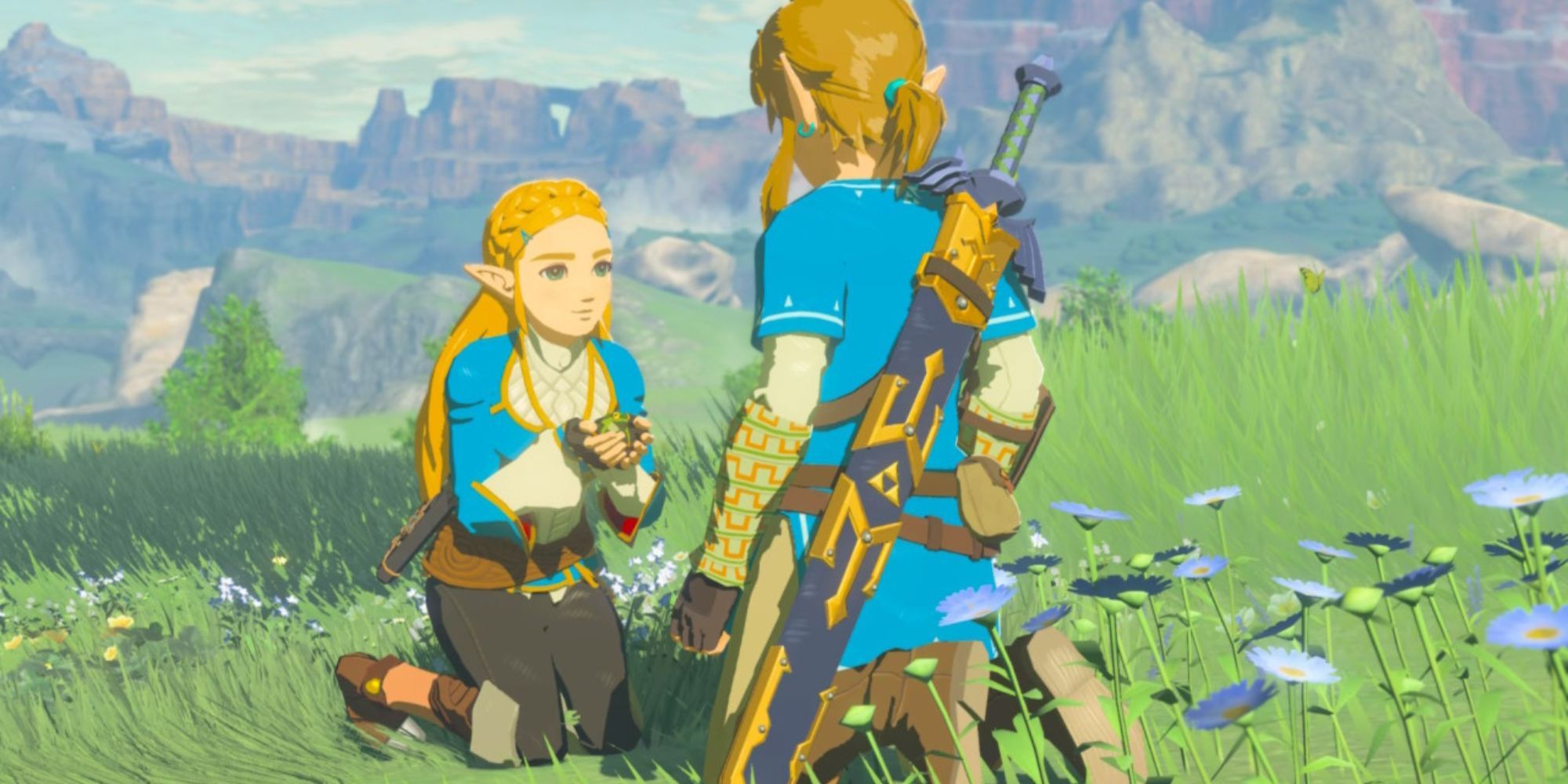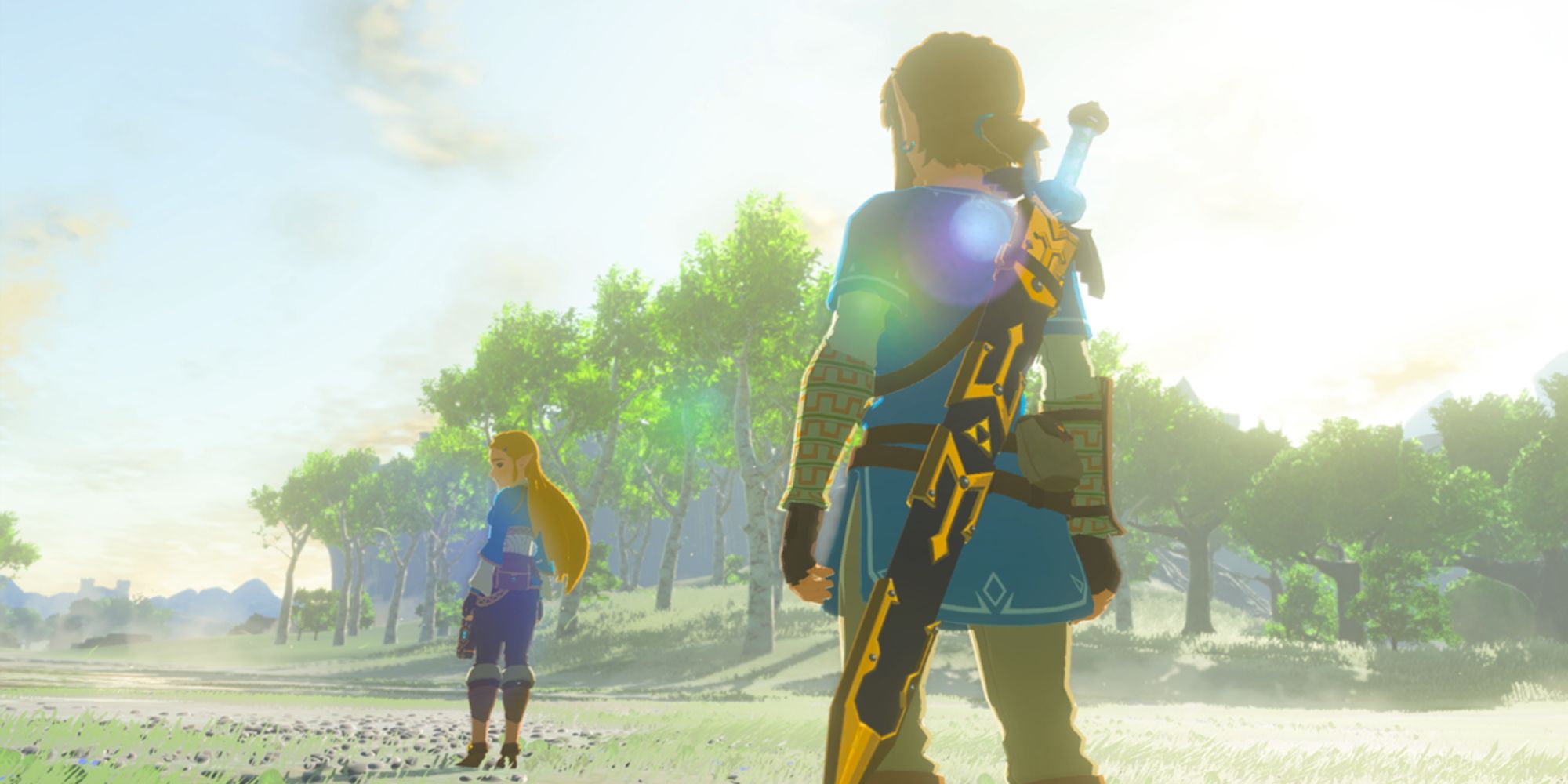The Legend of Zelda: Breath of the Wild’s voice acting isn’t great. But unless you’re counting the maligned CD-i games (which I’m not), it’s the first time Nintendo has ever voiced its most iconic characters. Knowing this, the modern classic not only does a commendable job with its vocal performances, but it raises the series’ benchmark when it comes to storytelling and creating lore that anyone can care about. It is far more involved, emotional, and impactful in the plight of its narrative, largely thanks to the actors helping bring it to life.
Tears of the Kingdom will see much of the same cast return, alongside renowned names like Matt Mercer joining the ranks to play Ganondorf. Trailers and previews suggest a heavier focus on narrative, given that Link is no longer exploring an apocalyptic world on his lonesome trying to gather allies, but instead already has friends to rely on. When Breath of the Wild first launched, the idea of voice acting in Zelda was still new, and it surfaced rarely enough in the experience itself to always feel like an outsider.
When I first played Breath of the Wild, its voice acting felt out of place. I was so used to these characters being confined to new appearances and personalities with each new iteration, and now they were talking with each other with a sense of agency that far outweighed anything that came before. We weren’t given enough moments to process these interpretations, with Zelda’s voice only ever surfacing in the introduction and the regular appearance of the Blood Moon. You’d have to seek out flashbacks and catch rare narrative glimpses of them without much development to go on.
This passive, mysterious approach works in its favour, and Breath of the Wild would be infinitely weaker if it stopped to dump exposition on our asses every few hours. We can take things at our own pace, but unfortunately, this only makes the voice acting harder to swallow. It’s grown on me over the years though, to a point where I will defend it from detractors who dismiss it as mediocre.
Princess Zelda’s performance is my personal favourite, which is ironic given it used to be the voice I most despised. Upon first listen, she sounds like a caring nursery teacher or somebody’s nan who is determined to keep giving you sweets that passed their expiry date six years ago. It isn’t what you’d expect to come out of her mouth, until she earns our respect with moments of regal gravitas where it’s impossible not to feel the royal weight resting on her shoulders.
Solemn exchanges with Link as she’s sat upon a small statue, hesitantly asking her hero whether, in another life, if he would abandon the hostile destiny set out for him. She constantly questions her own place in everything while resenting a family she was born into that requires her eventual sacrifice. Yet even after throwing her life away to an unknown cause, the heroes lose, and everyone she loves is taken from her regardless.
A century in solitude waiting for her saviour is hardly a fitting grave, and Patricia Summersett does a tremendous job making us care despite this initially campy delivery. Much like the cartoons we grew up watching where hijinks are the main focus, characters and places are still developed in ways that make us care, expressing feelings ranging from love to empathy to frustration.
Zelda nails all of these, and it all comes to a head in an ending that resolves her character arc in a brutally tragic fashion. After the restoration of Hyrule has begun and a brave new world waits before her on the horizon, she turns to Link and asks, after all that’s happened, if he still remembers her. The queen and friend he served for years and would happily die for. There’s a guilt in Summersett’s portrayal that I can’t ignore, and it’s amazing.
Similar praise can be heaped on several characters in Breath of the Wild. Mipha and Sidon are also conflicted in their ingrained roles of monarchy, dealing with the pressure of saving their kingdoms and the failures that might come to pass. Urbosa is bold and assertive, yet still caring for her friends in times of hardship. Link doesn’t speak at all, although his vocal grunts and facial expressions make him feel alive even with no real voice at all. His silence allows a greater focus to be placed on the spoken roles around him, letting their individual arcs shine as we have no choice but to stop and listen for a while.
Voice acting still belongs in a game otherwise dictated by silence so long as it strikes the right balance, and Breath of the Wild understands this. Every line is written and delivered with purpose, never keeping us away from our own journey for too long with acting that stays with us in all the right ways.




